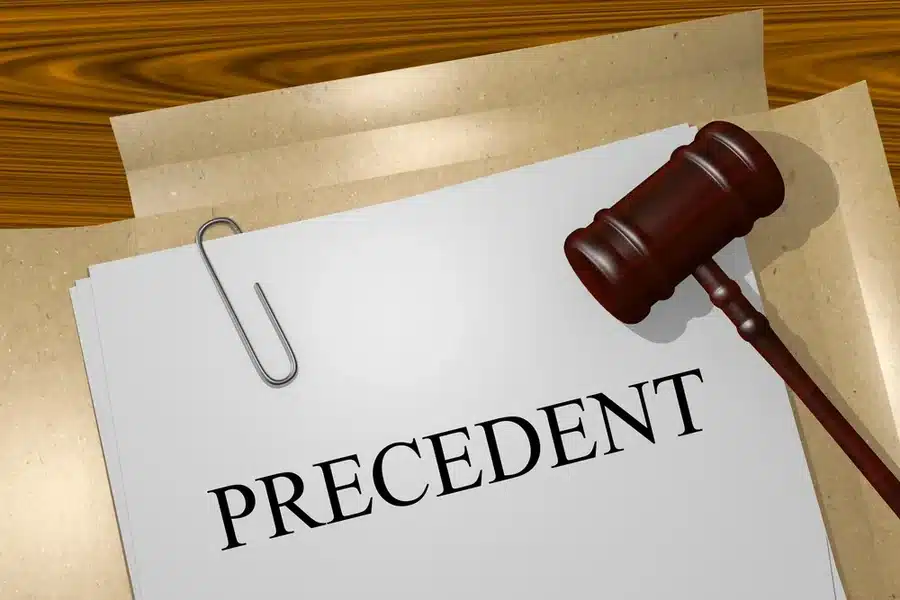The Impact of Precedent-Setting Cases: How Landmark Decisions Shape Future Lawsuits

As you navigate the intricate landscape of the legal system, you will inevitably encounter the profound influence of precedent-setting cases. These landmark decisions serve as the foundation upon which future lawsuits are built, shaping the contours of legal interpretation and application. Whether you’re looking for a little-known personal injury attorney, this article delves into the transformative power of such cases, illustrating their enduring impact on jurisprudence.
Understanding Precedent-Setting Cases: What Makes Them Landmark?
Defining Landmark Cases
Landmark cases are pivotal judicial decisions that redefine the legal landscape, often setting a precedent for future lawsuits. These cases are typically characterized by their ability to establish significant legal principles, interpret existing laws in novel ways, or overturn previous legal doctrines. The importance of these cases lies in their lasting impact on the judicial system, often influencing policy changes and societal norms.
Criteria for Landmark Status
To achieve landmark status, a case generally addresses a profound legal question or societal issue, prompting a shift in legal interpretations. Additionally, these cases often resonate beyond the courtroom, sparking public discourse and, at times, leading to legislative action. This transformative power is what distinguishes them as milestones in legal history.
Examples and Impact
For instance, Brown v. Board of Education significantly altered the course of American education by declaring racial segregation unconstitutional. Such cases serve as benchmarks, guiding future judicial decisions and profoundly shaping the legal framework.
Historical Landmark Decisions and Their Long-Term Impact
Cases That Changed the Legal Landscape
Certain landmark decisions have fundamentally altered the legal landscape, setting new precedents that continue to influence the judicial process. For instance, Brown v. Board of Education dismantled the legal basis for racial segregation in public schools, impacting civil rights laws for decades. This decision redefined educational policies and inspired further legislative change across various sectors.
The Domino Effect of Judicial Precedents
Landmark cases often create a domino effect, where one ruling paves the way for subsequent legal challenges and reforms. Such decisions establish a framework for interpreting laws in future cases, ensuring consistency in legal reasoning. This ripple effect underscores the far-reaching implications of precedent-setting cases, guiding lawyers and policymakers in navigating complex legal issues.
How Precedent-Setting Cases Shape Future Lawsuits
Establishing Legal Principles
Precedent-setting cases are pivotal benchmarks that establish legal principles to guide future judgments. When courts decide on a case that introduces new interpretations of the law, these decisions act as a reference for subsequent cases.
This process ensures consistency and predictability in the legal system. For instance, landmark civil rights or intellectual property decisions have created frameworks that influence thousands of future rulings.
Influencing Judicial Reasoning
Moreover, precedent-setting cases have a significant influence on judicial reasoning. Judges often rely on these landmark decisions to justify their rulings, integrating established interpretations into their reasoning.
This reliance on precedent helps maintain a coherent legal system, where similar cases are approached similarly, ensuring fairness. As a result, understanding these cases is crucial for legal professionals aiming to anticipate and navigate future legal challenges.
The Role of Judicial Interpretation in Landmark Decisions
Judicial interpretation is the backbone of landmark decisions, shaping legal landscapes for generations. When a court encounters a case with novel issues, judges must interpret the law, often delving into the legislative intent behind statutes. This involves examining the legislation’s literal text, historical context, and purpose. The interpretive process is not merely an academic exercise; it yields consequences that extend beyond the immediate case.
Influences on Future Cases
Judicial interpretations in landmark decisions often precede future courts in similar legal conundrums. These interpretations help create a consistent legal framework, ensuring that subsequent cases are adjudicated with predictability and fairness. Crucially, this process empowers courts to adapt legal principles to evolving societal norms, ensuring laws remain relevant over time.
Analyzing Recent Precedent-Setting Cases and Their Influence on Modern Law
The Ripple Effect of Landmark Cases
In modern jurisprudence, recent landmark cases continue to exert a profound influence, shaping the interpretation and application of laws. Such cases often introduce new legal principles or clarify existing statutes, setting future litigation trajectories. For instance, the Supreme Court’s ruling on same-sex marriage not only legalized it nationwide but also set a precedent affecting subsequent cases involving LGBTQ rights.
The Role of Judicial Interpretation
Judges, through their interpretations, play a pivotal role in bringing these precedents to life. Their decisions can either reinforce traditional views or propel legal evolution. These interpretations often serve as a blueprint for lower courts, guiding them in resolving similarly contentious issues. Consequently, precedent-setting cases are a cornerstone for legal consistency and adaptability in an ever-evolving society.
Final Thoughts
Traversing the intricate landscape of precedent-setting cases, you gain an enriched understanding of how landmark decisions carve pathways for future litigation. These pivotal rulings do more than resolve individual disputes; they act as guiding stars in the vast galaxy of legal interpretation, influencing the trajectory of justice. Whether looking for a little rock personal injury attorney, consider the profound ripple effects of these cases and their ability to redefine legal standards as you navigate your professional endeavors.
